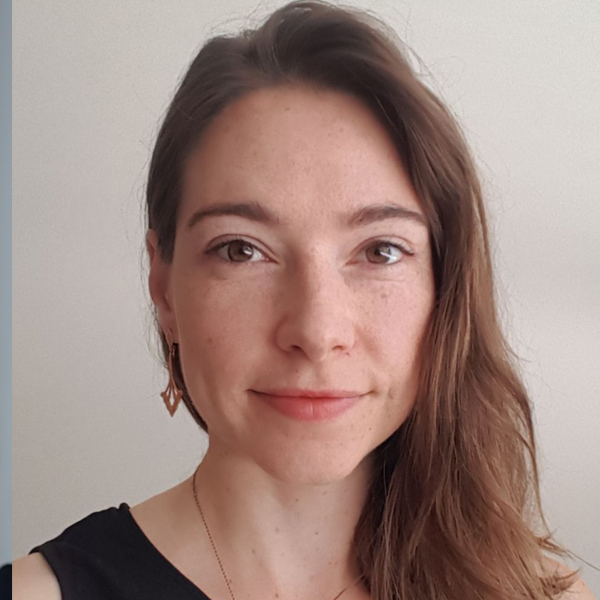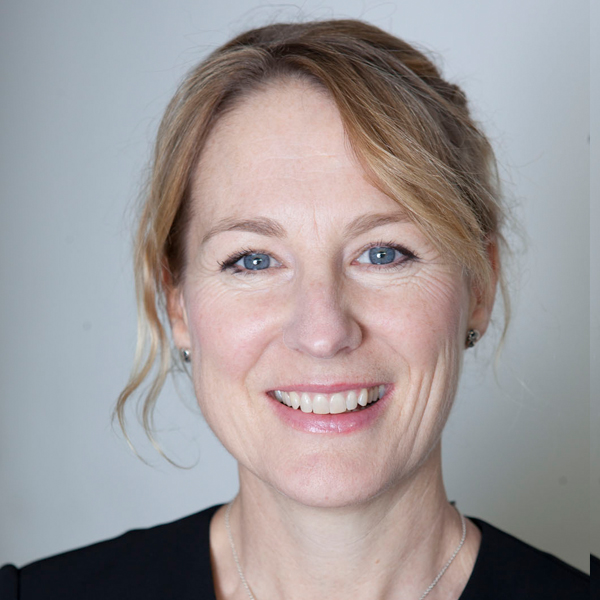For most of us, coronavirus has meant living with uncertainty, anticipation, and change. By March 20, Australian borders were closed to all non-residents. Every few days, new announcements from the national cabinet or state government invoked further restrictions: staying at home except for essentials; limitations on indoor and outdoor gatherings; closure of pubs, gyms and schools; suspension of all non-urgent elective surgery. TV, radio and online news was flooded with information about coronavirus, a constant update of what the future might hold, from the newest development in vaccines or treatment, to debates on living with coronavirus vs complete eradication. Fundamental facts about coronavirus are still not yet established: how long it lasts on different surfaces, the proportion of people who fail to show symptoms, whether people develop immunity once infected, and the long-term health impacts for individuals. Add to all of this the fact that the pandemic extends well beyond the domain of health, with huge economic and social impacts, and asks us to give up our personal freedom for the benefit of the community.
And so, we find ourselves in a position where the situation is constantly evolving, information about coronavirus is often inconsistent or unclear, there are many unknowns about the virus itself. And through all of this, many are trying to simultaneously deal with financial and social changes that affect our daily life. It is unsurprising that acting on health advice or directives regarding the pandemic can be challenging. And yet, this is critical. As we have seen, a single infected person is enough to generate a new wave of infection. By the same token it is clear that strategies such as restrictions, increased testing and contact tracing are effective at limiting the spread of the virus in Australia. At its peak, the Victorian 14-day average reached 460 new cases per day. With these strategies in place, this has finally eased to an average 7.7 cases per day at the time of writing. Effective pandemic management requires engaging and supporting the community to act on health advice.
Estimates of inadequate health literacy are even higher for older adults…
In practice however, this can be very challenging. A key issue is that health information is often not communicated in a way that everyone can easily access and understand. We can think of this issue both in terms of the complexity of the information, as well as the skills that people need in order to access, understand, and act on that health information (we call this ‘health literacy’). Direct assessments estimate around 60% of the Australian population have inadequate (i.e. “very poor” or “marginal”) health literacy and 53% had inadequate numeracy (the ability to understand and interpret numeric information). Estimates of inadequate health literacy are even higher for older adults, people with less formal education, and people who do not speak English as their main language at home.
What does this mean in the context of the coronavirus pandemic? Health literacy skills support people to find information that is reliable and up-to-date, to understand key messages and advice from government, and ultimately, to make informed decisions that support the safety of our community. Furthermore, the groups with higher levels of inadequate health literacy and numeracy are also those that may be most adversely affected by coronavirus (e.g. older adults and people living with other chronic conditions) and those who have had to endure greater financial impacts of the pandemic.
Our recent study supports this concern. In mid-April this year (during stage 3 restrictions), 4,362 Australian adults took part in a national survey to gather information on peoples’ beliefs, attitudes and uptake of public health messages related to coronavirus. Though only 13% of the sample reported having inadequate health literacy, this group reported that they had greater anxiety and more serious financial impacts, compared to people with adequate health literacy. This group also reported a stronger sense that they were not at all personally prepared for the coronavirus outbreak.
People with inadequate health literacy also regarded the pandemic as a less serious public health threat…
Our study also found that people with inadequate health literacy experienced more difficulty finding information and understanding government messaging about COVID-19 than people with adequate health literacy. Perhaps it is unsurprising, then, that this group also experienced more difficulty identifying three key symptoms of coronavirus compared to people with adequate health literacy (49% vs 68%), and had more difficulty identifying three key behaviours to prevent infection (59% vs 72%). People with inadequate health literacy also regarded the pandemic as a less serious public health threat and regarded social distancing as less important. They were more likely to endorse statements about misinformation: that the effectiveness of vaccines is made up, the threat of coronavirus is greatly exaggerated, the benefits of herd immunity for coronavirus are being covered up, and that government restrictions are stronger than what is needed.
It is important to make clear that the fault for lower levels of understanding lies not with people with lower health literacy. It is a result of the public health messaging. At the time the survey was implemented, despite best intentions, public health message had been ad-hoc, messaging (eg about masks) had been inconsistent because information was changing so rapidly, and messages were often not conveyed in simple English following health literacy principles for clear communication. And whilst Australian and state governments are now increasingly turning their attention to the health literacy demands of their coronavirus communications, these efforts must continue to avoid future gaps in our community’s knowledge and attitudes. As messages are updated or changed, we must continue efforts to provide culturally tailored and translated materials so that all Australians have access to information about the pandemic that they can understand and act on.
What’s next…
In the coming months, our team will focus on three areas of research, in addition to continuing our larger national survey. First, we will be investigating personal barriers to testing for COVID-19 when symptoms appear, and the most effective ways to overcome these barriers and increase testing. We will also launch a survey to better understand the impact of COVID-19 on our culturally and linguistically diverse communities which will include adults from 10 different language groups in Western Sydney. We want to know how people in these communities understand COVID-19, and how information about the pandemic spreads through these communities. Lastly, we will also investigate GP perspectives on the pandemic and the support they require. Through this research we can make a substantial contribution to a growing evidence-base for COVID-19 research and management.
In Australia, a whole-community effort is needed to manage the pandemic. For this to happen we must make it a priority to take into account the health literacy, language and cultural needs of our community in public health messaging about COVID-19 – we hope to help this happen.
Read more about our COVID-19 survey results:
- Disparities in COVID-19 related knowledge, attitudes, beliefs and behaviours by health literacy (Public Health Research & Practice, Sax Institute)
- COVID-19: Beliefs in misinformation in the Australian community (MedRxiv preprint)
- Lessons from the COVID-19 pandemic: People’s experiences and satisfaction with telehealth during the COVID-19 pandemic in Australia (MedRxiv preprint)
- Behavioural barriers to COVID-19 testing in Australia (MedRxiv preprint)
- Willingness to vaccinate against COVID-19 in Australia (The Lancet Infectious Diseases)
- Impact of COVID-19 Restrictions on People with Hypertension (MedRxiv preprint)
Read more about other Sydney Health Literacy lab projects
About the authors:
 Dr Julie Ayre is a behavioural scientist with an interest in health literacy, behaviour change for lifestyle and self-management, patient-provider relationships and mobile health. Her PhD explored how health literacy impacts on behaviour change strategies, and how diabetes self-management apps in primary care settings could better support people with diabetes and low health literacy. During her PhD she developed and tested health-literate action plans to reduce unhealthy snacking; these will soon be available on the Diabetes NSW & ACT website.
Dr Julie Ayre is a behavioural scientist with an interest in health literacy, behaviour change for lifestyle and self-management, patient-provider relationships and mobile health. Her PhD explored how health literacy impacts on behaviour change strategies, and how diabetes self-management apps in primary care settings could better support people with diabetes and low health literacy. During her PhD she developed and tested health-literate action plans to reduce unhealthy snacking; these will soon be available on the Diabetes NSW & ACT website.
 Professor Kirsten McCaffery, BSc Hons Psych, PhD Psych, FAHMS is a Principal Research Fellow at the Sydney School of Public Health, the University of Sydney and currently holds an NHMRC Principal Research Fellowship. She has a national and international reputation in shared decision making, health literacy and the assessment of psychosocial outcomes, and has had four successive NHMRC fellowships. She is Director of Research at the Sydney School of Public Health and Director of the Sydney Health Literacy Lab, a group of over 20 researchers and students at the School of Public Health.
Professor Kirsten McCaffery, BSc Hons Psych, PhD Psych, FAHMS is a Principal Research Fellow at the Sydney School of Public Health, the University of Sydney and currently holds an NHMRC Principal Research Fellowship. She has a national and international reputation in shared decision making, health literacy and the assessment of psychosocial outcomes, and has had four successive NHMRC fellowships. She is Director of Research at the Sydney School of Public Health and Director of the Sydney Health Literacy Lab, a group of over 20 researchers and students at the School of Public Health.
